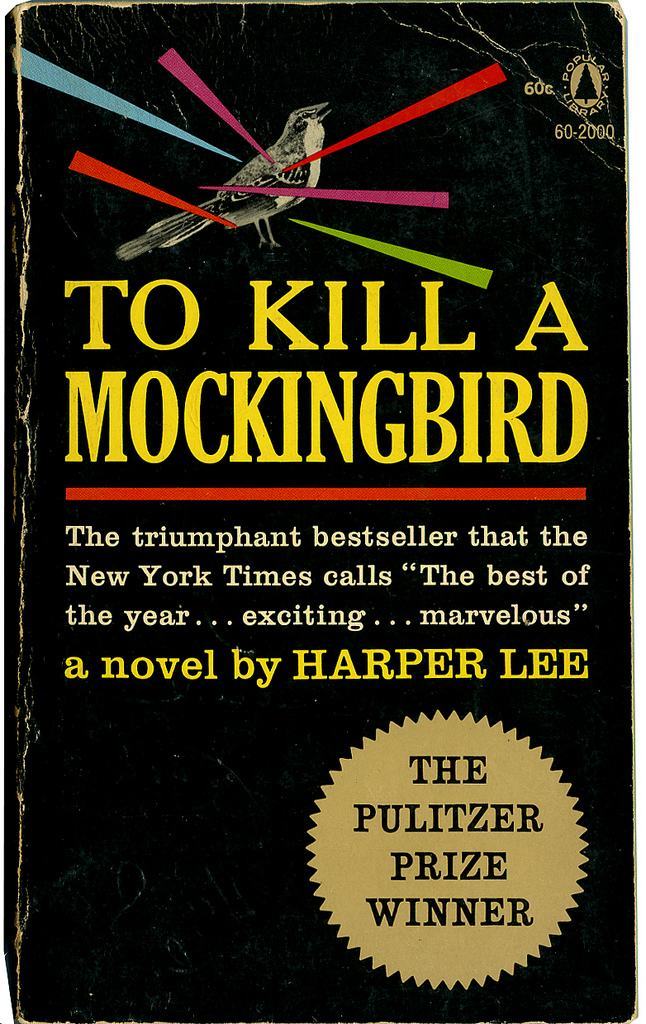I thought I had read To Kill a Mockingbird before, but I must have been mistaken. I couldn’t have forgotten so much of so powerful a book.
It must have been the movie that confused my memory. It’s an excellent adaptation of the book, but it focuses more on the Tom Robinson trial. The trial is an important part of Harper Lee’s novel, but the canvas is broader.
The novel presents the experiences of a girl growing up in a small Alabama town in the 1930s. Her father is Atticus Finch, an attorney of impeccable integrity. It presents what seems to me like an honest picture of people’s attitudes in that place and time.
Many people have tried to ban the book, from Biloxi, Mississippi to Burbank, California. The reason seems to be a desire to cover up the past history of the South. White people at that time and place used racially insulting language without even thinking about it. We’re supposed to pretend that didn’t happen.
One ban request claimed that Finch is portrayed as a white savior. I guess the book should have pretended that black people were allowed to practice law and had a fantasy black lawyer who would present a case to a racially unbiased jury. Aside from that — well, explaining why the claim about his portrayal is absurd would be a major spoiler.
A novel that presented black people in the South of the Thirties as having equality, respect, and access to unbiased justice would be a horrible lie. Pretending racism never existed won’t help us to deal with it today.
Maybe it’s the portrayal of racism in ordinary people rather than cross-burning fanatics which scares the book-banners. The novel shows how racial attitudes are part of the culture, and most people accept them not out of hatred, but because that’s how it’s always been. It’s disturbing to think that people can hold ideas and do things which we now recognize as horrible, without being horrible people.
It takes effort to rise above the accepted ideas of a culture, and To Kill a Mockingbird shows people managing to do it. It shows what people once were and sometimes still are and shows a piece of the process of change for the better. (Which, by the way, is what I aimed to do in The Magic Battery.)
Another novel that incidentally describes the compromises that decent white people used to have to make in such times & places (1915, Tennessee) is James Agee’s autobiographical one, _A Death in the Family_ — especially the more complete & accurate version edited by M. A. Lofaro, (2007). The book is not about racism, but about being a child; but there are some sickening scenes.